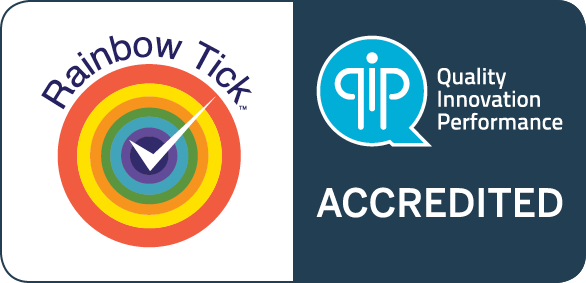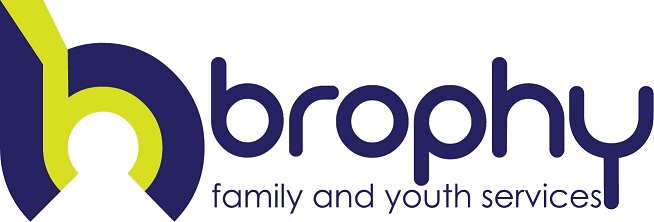In 2018, Brophy proudly became the 26th organisation in Australia to receive accreditation against the Rainbow Tick Standards for LGBTI-inclusive practice. Brophy was re-accredited against these standards in 2021.
Rainbow Tick represents our commitment to providing a safe and inclusive service for lesbian, gay, bisexual, trans and gender diverse, intersex and queer clients, carers, employees and the broader community.
For more information about Rainbow Tick please visit https://www.rainbowhealthvic.org.au/
Names & Pronouns
At the bottom of our Brophy emails you will see our names and pronouns. Here’s a little more information about why names and pronouns are so important to our LGBTIQA+ friends.
Names
A name can be a very personal thing for someone who is transgender or gender diverse. A lot of time and thought can go into exploring the right name. It is important to use a person’s chosen name rather than a birth (or dead) name.
Pronouns
A pronoun is a word that replaces a name. He and she are both gendered pronouns. For gender diverse, non-binary people, the use of gendered pronouns may not reflect how they identify, and may have desire to use a non-gendered pronoun such as they.
If you make a mistake, this is known as misgendering, promptly apologise and move on. Don’t dwell on it, and don’t give up – keep trying to get it right. Repeated mistakes indicate a lack of respect, and can be very distressing. If it continues or is deliberate, it could constitute bullying or discrimination which is unlawful.
If you’re unsure what someone’s pronoun is, you can ask them respectfully, and preferably privately. Use a question like “Can I ask what pronoun you use?”.
Below are examples of pronouns used in conversation
Masculine (Male)
- HE HIM HIS
- HE went to the shop.
- It was HIM.
- The book is HIS.
Feminine (Female)
- SHE HER HERS
- SHE went to the shop.
- It was HER.
- The book is HERS.
Neutral/Non-Binary (They)
- THEY THEM THEIRS
- THEY went to the shop.
- It was THEM.
- The book is THEIRS.
Comprehensive LGTIQA+ Inclusive Language Guide: https://www.vic.gov.au/inclusive-language-guide

